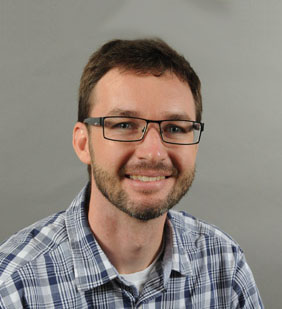
Douglas Woodhams
Area of Expertise
Disease Ecology
Professional Publications & Contributions
- Woodhams, Douglas C; Barnhart, Kelly L; Bletz, Molly C; Campos, Alberto J; Ganem, Steven J; Hertz, Andreas; LaBumbard, Brandon C; Nanjappa, Priya and Tokash-Peters, Amanda G (July 2018) Batrachochytrium: Biology and Management of Amphibian Chytridiomycosis. In: eLS. John Wiley & Sons, Ltd: Chichester.
- Becker M*, Walke J*, Murrill L, Woodhams DC, Reinert L, Rollins-Smith L, Burzynski E, Umile T, Minbiole K, Belden L. (2015) Microbial Phylogenetic distribution of symbiotic bacteria from Panamanian amphibians that inhibit growth of the lethal fungal pathogen Batrachochytrium dendrobatidis. Molecular Ecology
- Woodhams DC, Alford RA, Antwis RE, Archer H, Becker MH, et al. (2015) Antifungal isolates database of amphibian skin-associated bacteria and function against emerging fungal pathogens. Ecology, 96:595.
- Bresciano JC*, Salvador CA, Paz-y-Miño C, Parody-Merino AM, Bosch J, Woodhams DC. (2015) Variation in the presence of anti-Batrachochytrium dendrobatidis bacteria of amphibians across life stages and elevations in Ecuador. EcoHealth, DOI: 10.1007/s10393-015-1010-y
- Woodhams DC, Brandt H*, Baumgartner S*, Kielgast J*, Kuepfer E*, Tobler U*, Davis LR*, Schmidt BR, Bel C*, Hodel S*, Knight R, McKenzie V. Interacting symbionts and immunity in the amphibian skin mucosome predict disease risk and probiotic effectiveness. PLoS ONE, 9(4): e96375. doi:10.1371/journal.pone.0096375
- Voyles J, Philips A, Driessen M, Webb M, Berger L, Woodhams DC, Murray K, Skerratt L. Assessing Host Susceptibility to Chytridiomycosis for Conservation of Tasmanian Amphibians. Herpetological Conservation and Biology, 9(1):106-115.
- Küng D*, Bigler L, Davis LR*, Gratwicke B, Griffith E, Woodhams DC. Stability of microbiota facilitated by host immune regulation: informing probiotic strategies to manage amphibian disease. PLoS ONE, 9(1):e87101.
- Loudon AH*, Woodhams DC, Wegener Parfrey L, Archer H, Knight R, McKenzie V, Harris RN. Microbial community dynamics and the effect of environmental reservoirs on red-backed salamanders (Plethodon cinereus). The ISME Journal, 8(4):830-840.
- Farrer RA*, Henk DA, Garner TWJ, Balloux F, Woodhams DC, Fisher MC. 2013. Chromosomal copy number variation, selection and uneven rates of recombination reveal cryptic genome diversity linked to pathogenicity. PLoS Genetics 9(8):e1003703.
- Woodhams DC & Brucker RM. 2013. Disease defense through generations: leaf-cutter ants and their symbiotic bacteria. Molecular Ecology, 22(16):4141-4143.
- Kueneman JG*, Wegener Parfrey L, Woodhams DC, Archer HM, Knight R, McKenzie VJ. 2013. The amphibian skin microbiome across species, space and life history stages. Molecular Ecology, 23(6):1238-1250.
Additional Information
Research Interests
We study the immunological ecology of infectious disease, and the evolution of symbiotic microbiota. This includes aspects of host-symbiont-pathogen biology, environmental physiology, and conservation medicine. Our goal is to advance probiotic strategies to mitigate the effects of chytridiomycosis on wild amphibian populations, and to reduce the risk of arbovirus transmission by mosquitoes. Development of novel biotherapies to stabilize beneficial microbial communities is one application linking ecology to public health.
Fieldwork ranges from locally in Massachusetts to tropical rainforests. While ecologically focused, research methods in the Woodhams Lab incorporate immunological chemistry and mass spectrometry, next-generation sequencing and bioinformatics analysis of microbial diversity and community function. A new focus of lab research involves development of germ-free tadpoles for studies on host-microbe interactions in disease ecology.
Prospective Students and Research Opportunities
Learn about research opportunities in the Woodhams Lab
Teaching
Learn about upcoming courses
